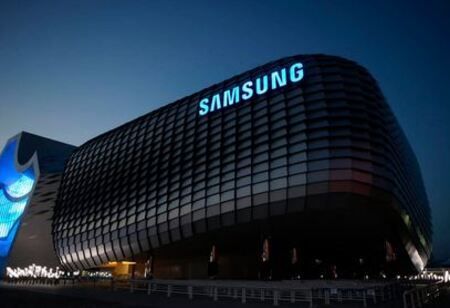
Samsung to Invest $117 Million in Chennai Facility, Minister Says


Months after worker demonstrations at the plant after employee suspensions, a minister announced that Samsung Electronics, a subsidiary of South Korea, will spend 10 billion rupees ($117.09 million) in its southern India operation.
The facility in Chennai has gained attention recently after workers staged a sit-in in February over employee suspensions, which was the second significant labor conflict there in less than six months.
Before the electronics company agreed to the workers' requests, hundreds of workers at the plant went on strike for five weeks in September of last year, demanding union registration and greater salaries.
The company's additional investment "reinforces their faith in the labour force of Tamil Nadu state," T. R. B. Rajaa, the state's minister for industries, investment promotion and commerce, said on social media platform X, adding that Samsung would add 100 more jobs to the facility.
Samsung and the workers' union are at odds over the company's alleged union-busting practices.
Nonetheless, Samsung has insisted that it is "compliant with all applicable laws."
At the moment, it has over 2,000 employees. A timeline for the investment is yet to be made public.
A quarter of Samsung's $12 billion in sales in India in 2022–2023 came from the facility, which produces washing machines, refrigerators, and televisions.
However, South Korean tech giant Samsung is thinking of moving some of its electronics and smartphone production to India in response to the high US tariffs on Vietnam.
This event occurred one day after it was reported that Alphabet Inc., the parent company of Google, had also started talking with Foxconn and Dixon Technologies, its contract manufacturing partners in India, about shifting some of the manufacture of Pixel smartphones from Vietnam to India.
Also Read: 5 Differently-abled Entrepreneurial Heroes Leading the Change
Recent changes are being fueled by changing geopolitical factors as well as lost costs. The US government, under President Donald Trump, declared earlier this month that Vietnamese goods will be subject to a 46 percent duty. In the meantime, it levied a 26 percent tax on India. On April 9, a 90-day halt to reciprocal tariffs was announced for all trading partners, with the exception of China. China, a significant supplier of electronics, was notably left out of the postponement and is still subject to a 145% tax.